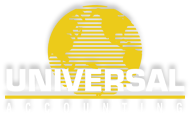Year-End Is Where the Fun Begins!
 It’s That Time Again
It’s That Time Again
It’s that time of year again when most businesses are closing their books. The business owners are either celebrating or licking their wounds. In any event, we as accountants usually have some clean-up and decision making to do.January thru April is when we do our best work (and make the most money). We’re well fed from the holiday festivities, and anxious to tackle a new challenge.
Year-End Financial Statements
The year-end financial statements are the most important reports we issue. They will be used for tax preparation, future reference, and decision making more so than any other monthly reports we prepare.For that reason we need to spend more time making sure we are correctly reflecting accurate information.As a timely refresher we are providing a simple checklist of items that you should consider for each business you are working with when ensuring the accuracy of your year-end books:Once you have completed this list, and before putting the books away for the year, make sure you run the financial statements by the owner/manager to identify anything you might not be aware of.The best way to do this is to arrange a meeting where you can show them the completed financial statements and review the balances of each account, including the subsidiary ledger balances.Throughout the review ask the question, “Do these balances seem reasonable?” At the end of the meeting ask, “Are there any other assets or liabilities that I haven’t included?” Occasionally, they might surprise you with an event that you didn’t have any knowledge of before, but that will effect your books.Finally, the last step of the year-end process is to check your Sales, Cost, and Expense accounts. Compare them to prior years to see if any increase or decrease is reasonable. If you run across some significant changes, you may want to look at the general ledger for that account to ensure the entries are legitimate.As you follow this year-end process you will be amazed at how much you learn. You’ll see trends and practices that will help you in consulting with the client and help him/her run their business more effectively.In fact, often times the accountant will know more about the business finances than the owner. That’s why so many Universally trained accountants diversify into new businesses because they see opportunities going untapped.So, this year, take the time and make the effort to be precise so that you can go into 2009 with reliable balances and peace of mind.
Year-End Accounting Checklist
- Does my general ledger bank balance reconcile to the bank statement?
- Are there any accounts receivables that are worthless and should be written off?
- Is my balance in Allowance for Bad Debts a reasonable estimate of potential writeoffs?
- Is the company’s inventory balance correctly stated?
- Are there inventory items that cost more than their worth and should be written down to their market value?
- Does the company still have all the fixed assets?
- Is my depreciation correctly recorded for those fixed assets still in the company’s possession?
- Did I amortize goodwill and franchise fees?
- Are there any prepaid items that need to be adjusted such as prepaid insurance?
- Have all assets been reviewed for accuracy?
- Have we recorded all of our payables?
- Do the payroll tax liabilities coincide with our quarterly reports?
- Do the balances in the notes payable accounts (loans) agree with what the banks say we owe?
- Are there other debts that have not been included on the books?
- Are there debts on the books that no longer exist because of forgiveness or oversight?
More Day-to-Day Accounting Tips
This Web site include many other Accounting and Bookkeeping tips to make servicing your clients less stressful and more profitable.Click HERE to Learn More Tips
Share this post: on Twitter on Facebook on Google+

 It’s That Time Again
It’s That Time Again


